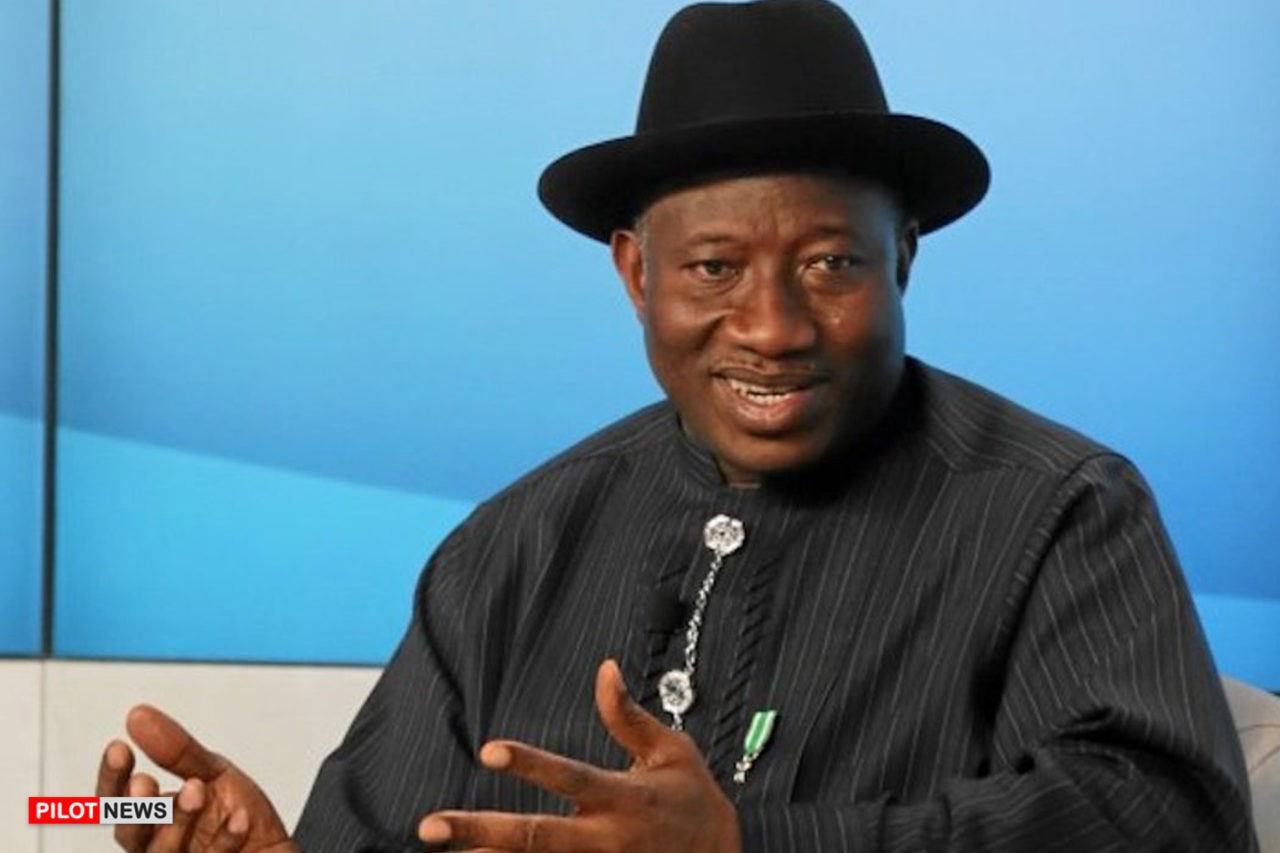Former President Goodluck Jonathan has advocated for a democratic model that will guarantee political inclusion and promote unity.
The former president made the remark on Tuesday while he delivered his speech as chairman of the 25th Anniversary Democracy Day Public Lecture in Abuja.
According to Jonathan, for democracy to yield its desired dividends, the political class and elite must lead by example and work with unity of purpose to guarantee peace and social justice to the citizens.
He noted that the return of democracy in 1999, after many years of military reign, signaled a new phase in national journey and shared vision of unity, peace and progress.
He stated that in the last twenty-five years, Nigeria has made modest progress in this regard amid some challenges.
“As a nation, we built an economy that was once the biggest in the African continent, experienced significant infrastructural growth, made strides in the arts and sports, and recorded many peaceful political transitions at the national and sub-national levels.
“We must work together despite our political differences, accommodate our diversity and prioritise policies that will impact the lives of our citizens.
“As we project towards celebrating the golden jubilee of our uninterrupted democracy, it is imperative to state that we need to work assiduously towards further strengthening state institutions so that they can withstand the shocks that threaten democratic governance.
“Democracy as a form of government is anchored on sets of promises in line with a nation’s development and growth aspirations. The fulfilment of these promises reinforces the citizens’ trust and faith in the government.
“As we celebrate 25 years of unbroken democracy. We look to the future with the hope that democracy has come to stay and that democracy will continue to take firm roots in our nation, and we will have cause to celebrate a centenary of uninterrupted democratic governance.
“To attain such a feat, the political actors and everyone at the helm of affairs in this country must listen to the voices of the citizens. The lifestyle of the political class should reflect the current realities in our land.
“Let me say that we need to come up with a model of democratic practice that will be more inclusive and reinforce social cohesion. The zero-sum kind of politics where a winner takes it all has not helped to foster unity and political justice.
“A political party that scores up to 30 per cent of the votes in an election at federal or state levels shouldn’t lose everything. We need to come up with innovative solutions that will address the challenge of political exclusion that usually comes up after elections.
“Zero-sum politics has over the years promoted desperation, agitations and disunity. We need to work out a model that guarantees political inclusion and promotes unity and tolerance in the polity.
“We can forge a Nigeria where every citizen has a voice, where opportunities abound, and where the promise of a better tomorrow is not just a dream, but a tangible reality.
“Let us therefore celebrate this milestone with pride and renewed determination. Let us ensure that the next 25 years of our democracy are even more transformative, more inclusive, and more prosperous for all.
“In line with the wordings of our National Anthem, “To handover to our children a banner without stain”, we must not handover to our children a democracy built on politics of region and religion. Democracy built on ethnicity does not endure. It will continue to wobble.
Meanwhile, Ambassador Babagana Kingibe who also co-chaired at the event said that in the last 25 years democracy has provided Nigeria with political stability and continuity in governance.
“During this period of uninterrupted democracy fundamental freedom has been enhanced and generally protected. Personal freedoms and expressed beliefs and opinions, freedom of association, freedom of the press, civil society activists, including trade union activists have all relatively thrived. Similarly advanced culture of the rule of law and strengthening of democratic institutions, such as the Independent National Electoral Commission (INEC), the judiciary and the police are all ongoing work in progress. Efforts have continued to be made in the area of accountability through such mechanisms as parliamentary oversight and the work on anti-corruption and similar agencies are the work to be done. So, government by the consent of the people, civil liberty, personal freedoms, and rule of law, strong institutions and accountability are the strong pillars on which democracy rests. We might ask whether we’ve succeeded in entrenching this in the last 25 years. The answer of course is no. Building and sustaining strong democracy is a lifelong endeavour in any nation, it’s always work in progress. Even older democracies as shown by just concluded parliamentary elections in Europe, just like in the U.S which has been practicing democracy in the last 250 years, they’re still grappling with the challenges of perfecting their democracies, “he said.
- Kogi: Ododo Orders Demolition Of Criminal Hideout In Okene - January 16, 2026
- PDP Seeks Improved Welfare Packages For The Armed Forces - January 16, 2026
- Atiku Seeks Unconditional Release Of Abubakar Musa, Others - January 13, 2026

